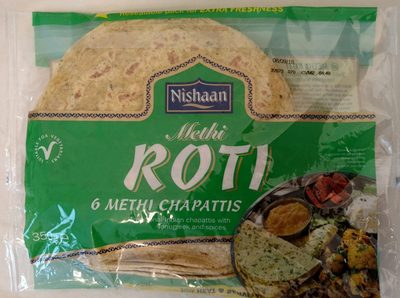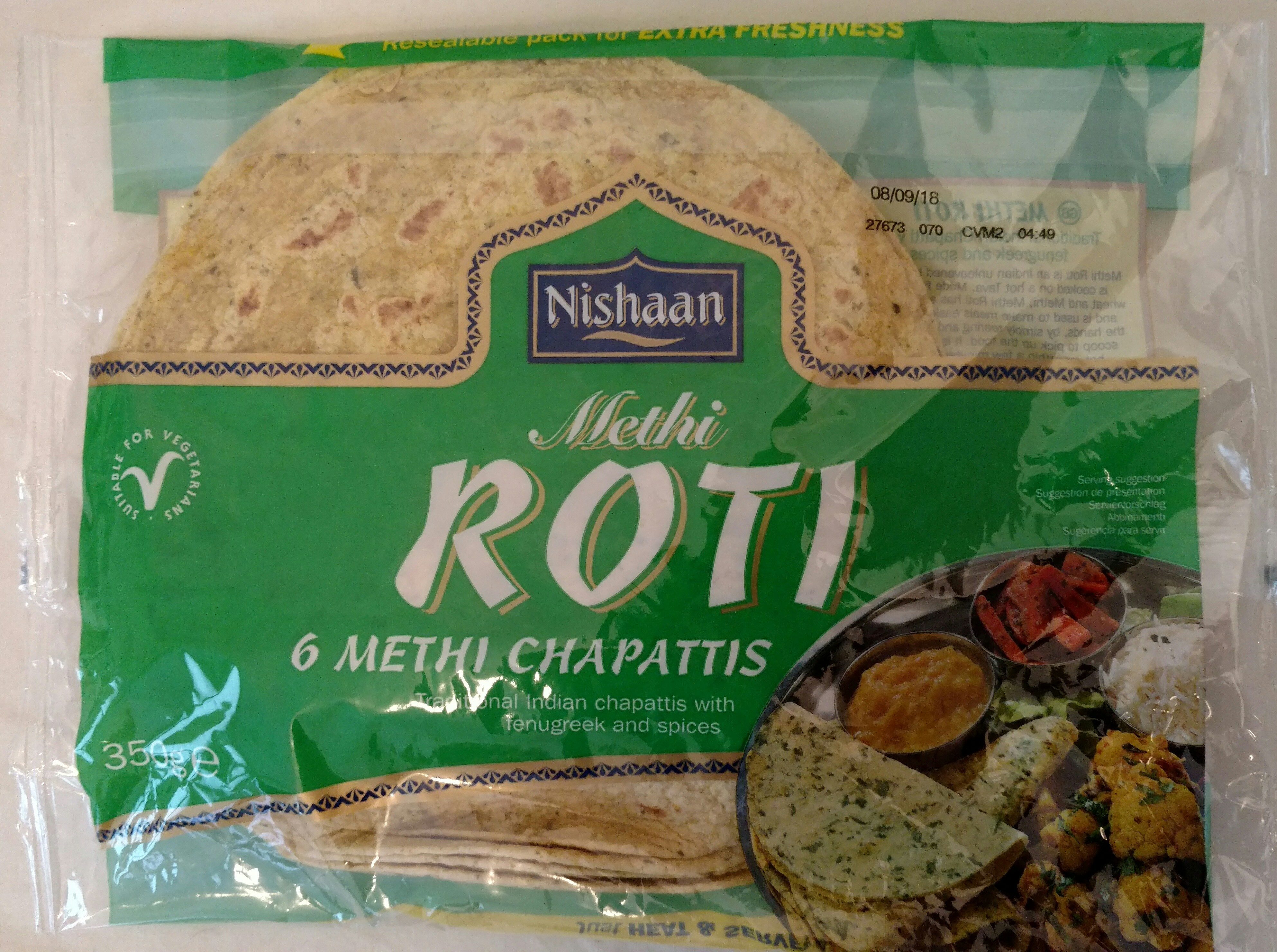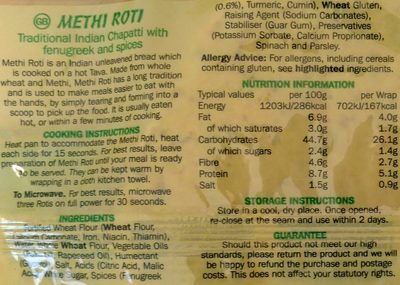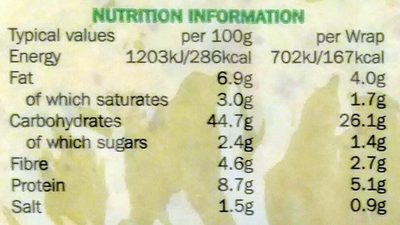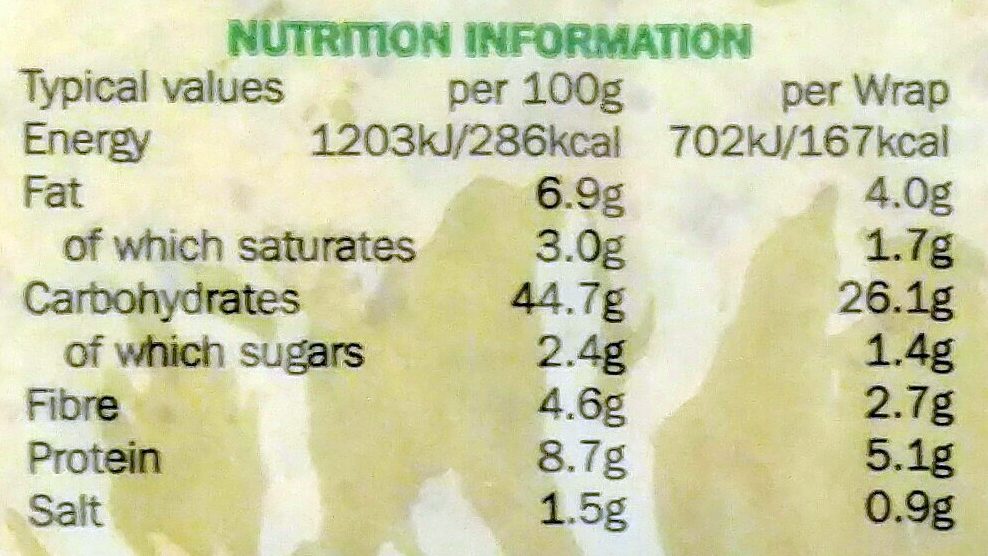Methi Roti 6 Chapattis - Nishaan - 350 g
This product page is not complete. You can help to complete it by editing it and adding more data from the photos we have, or by taking more photos using the app for Android or iPhone/iPad. Thank you!
×
Barcode: 5018605679793 (EAN / EAN-13)
Common name: Chapatti
Quantity: 350 g
Packaging: Plastic
Brands: Nishaan
Categories: Plant-based foods and beverages, Plant-based foods, Cereals and potatoes, Breads, Unleavened breads
Labels, certifications, awards: Vegetarian
Countries where sold: France, United Kingdom
Matching with your preferences
Environment
Packaging
Transportation
Threatened species
Report a problem
Data sources
Product added on by andre-o-mob
Last edit of product page on by packbot.
Product page also edited by kiliweb, openfoodfacts-contributors, vaporous, yuka.Do4aAe-kO8IgFdz_1L0q8WaeKvzOONR4SFJTog, yuka.ZnBJQkxZa21vL3NTdk1jWDFEYkYzOHQ3d2JpeFEzdW9DYzBiSVE9PQ.
